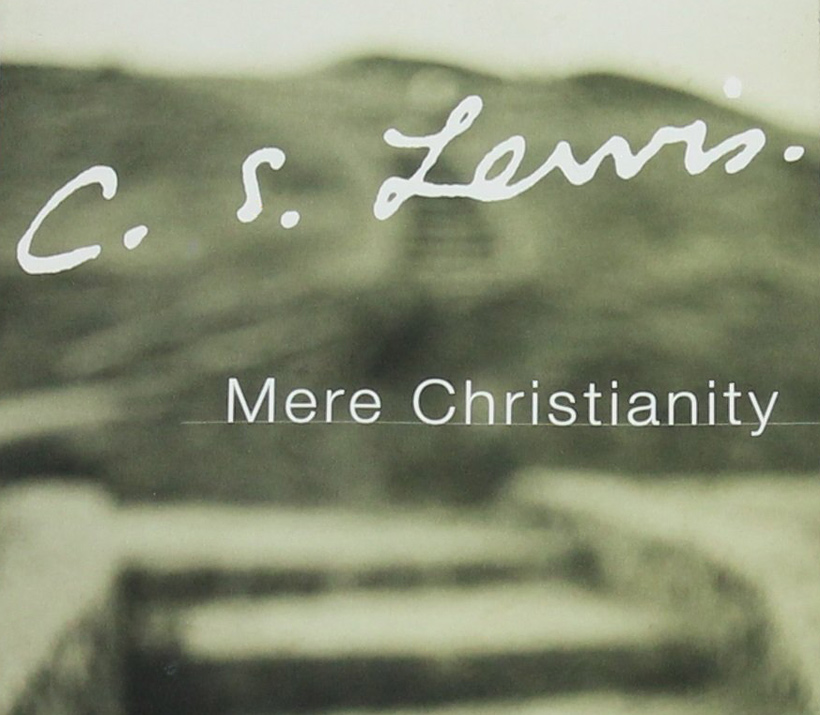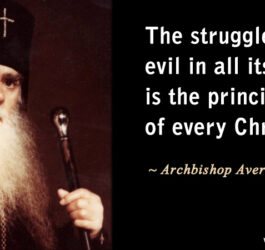C.S. Lewis is one of the most influential Christian writers of the 20th century and probably the most down-to-earth theologian that Western civilization has produced. His eloquent and reasoned defense of the core beliefs and truths of the Christian faith are truly awe-inspiring and timeless.
Lewis is an expert at making complex theological issues accessible and understandable by everyone, believers and non-believers alike. The profound and life-changing effects his writings have had on many generations bear witness to the clarity of thought, grace, and wisdom this author has bestowed upon his audience.
A master at appealing to logic and presenting issues in a whole new light, Lewis is not afraid to boldly and bluntly proclaim the obvious. An agnostic in his younger years, Lewis understood the objections of non-believers and dealt with their arguments head on.
Jesus Christ is God, Not Just a Moral Teacher
Perhaps one of his most well-known observations, recorded in the pages of Mere Christianity, concerns the “foolish” ideas people hold regarding Christ: “I’m ready to accept Jesus as a great moral teacher, but I don’t accept His claim to be God.” Lewis magnificently disposes with that kind of naive and fallacious thinking in just a few paragraphs:
Then come the real shock. Among these Jews there suddenly turns up a man who goes about talking as if He was God. He claims to forgive sins. He says He has always existed. He says He is coming to judge the world at the end of time. Now let us get this clear. Among Pantheists, like the Indians, anyone might say that he was a part of God, or one with God: there would be nothing very odd about it. But this man, since He was a Jew, could not mean that kind of God. God, in their language, meant the Being outside the world, who had made it and was infinitely different from anything else. And when you have grasped that, you will see that what this man said was, quite simply, the most shocking thing that has ever been uttered by human lips.
…
A man who was merely a man and said the sort of things Jesus said would not be a great moral teacher. He would either be a lunatic – on a level with the man who says he is a poached egg – or else he would be the Devil of Hell. You must make your choice. Either this man was, and is, the Son of God; or else a madman or something worse. You can shut Him up for a fool, you can spit at Him and kill Him as a demon; or you can fall at his feet and call Him Lord and God. But let us not come with any patronising nonsense about His being a great human teacher. He has not left that open to us. He did not intend to.
Why God Gave Man Free Will
The existence of evil in the world is a frequently cited argument used to attack Christianity’s categorical proclamation that there is a God and He is the Lord of all creation. Such overly-simplistic criticisms and immature objections are masterfully torn to shreds by common sense and magnificent logic articulated with effortless clarity.
Some people think they can imagine a creature which was free but had no possibility of going wrong; I cannot. If a thing is free to be good it is also free to be bad. And free will is what has made evil possible. Why, then, did God give them free will? Because free will, though it makes evil possible, is also the only thing that makes possible any love or goodness or joy worth having. A world of automata – of creatures that worked like machines – would hardly be worth creating.
Mere Christianity is full of many memorable and powerful revelations that elucidate the rock-solid foundations of Christian theology, our relationship to God, and the meaning of life. Only C.S. Lewis could summarize such broad concepts so eloquently without coming across as overly-religious or preachy. His extraordinary ability to focus on the core tenets of the Christian faith and explain them with remarkable ease, using sensible explanations – that even the average lay person could grasp and understand – reinforces the wide appeal and universality of his writings.
Regarding man’s relationship with and need for God:
God designed the human machine to run on Himself. He Himself is the fuel our spirits were designed to burn, or the food our spirits were designed to feed on. There is no other. That is why it is just not good asking God to make us happy in our own way without bothering about religion. God cannot give us a happiness and peace apart from Himself, because it is not there. There is no such thing.
Regarding true happiness and freedom:
The happiness which God designs for His higher creatures is the happiness of being freely, voluntarily united to Him and each other in an ecstasy of love and delight compared with which the most rapturous love between a man and a woman on this earth is mere milk and water. And for that they must be free.
On pursuing truth and finding comfort in our lives:
In religion, as in war and everything else, comfort is one thing you cannot get by looking for it. If you look for truth, you may find comfort in the end: if you look for comfort you will not get either comfort or truth – only soft soap and wishful thinking to begin with and, in the end, despair.
Genuine Love in Marriage
Love is another complex subject that is beautifully described and differentiated from the more ephemeral emotion of “being in love.” Countless marriages have been destroyed because people often mistake the latter for the former and go on trying to recapture that feeling without truly understanding what God intended. Many erroneously believe that ceasing to be “in love” means ceasing to love. They forget that Christ commanded us to love. Why would He need to do that if love was simply a feeling? Lewis eloquently explains:
Love as distinct from “being in love” is not merely a feeling. It is a deep unity, maintained by (in Christian marriages) the grace which both parents ask, and receive, from God. They can have this love for each other even at those moments when they do not like each other; as you love yourself even when you do not like yourself. They can retain this love even when each would easily, if they allowed themselves, be “in love” with someone else…. It is only on this love that the engine of marriage is run: being in love was the explosion that started it.
Christian Morality
Finally, the idea of Christian morality is presented in its proper perspective. Rather than a “kind of bargain” that many believe God makes with mankind in which He will reward us if we follow all the rules and go to Hell if we don’t, Lewis depicts it as a journey towards light or darkness that is driven by our decisions. Each choice we make turns the central part of us, that “part that chooses,” into something “a little different from what it was before.”
And taking our lives as a whole with the all of our “innumerable choices” we make, we are slowly turning that central part of us into a “heavenly creature” that is “in harmony with God and the other creatures”, full of joy, peace, and wisdom, or “into a hellish creature” that is “in a state of war and hatred with God”, with “other creatures”, and with itself. “Each of us at each moment is progressing to the one state of the other.” It is up to us to decide how we proceed and in which direction we are heading. There are no neutral acts in God’s universe.
In a world that is increasingly alien to God’s truth and progressively more hostile towards the Christian faith, rational thought and common sense, Mere Christianity stands as a testament to sanity, truth, wisdom, faith, and love. Its enduring and inspiring message shines like a bright beacon across the ages continually guiding and helping all those who have eyes to see and ears to listen.





